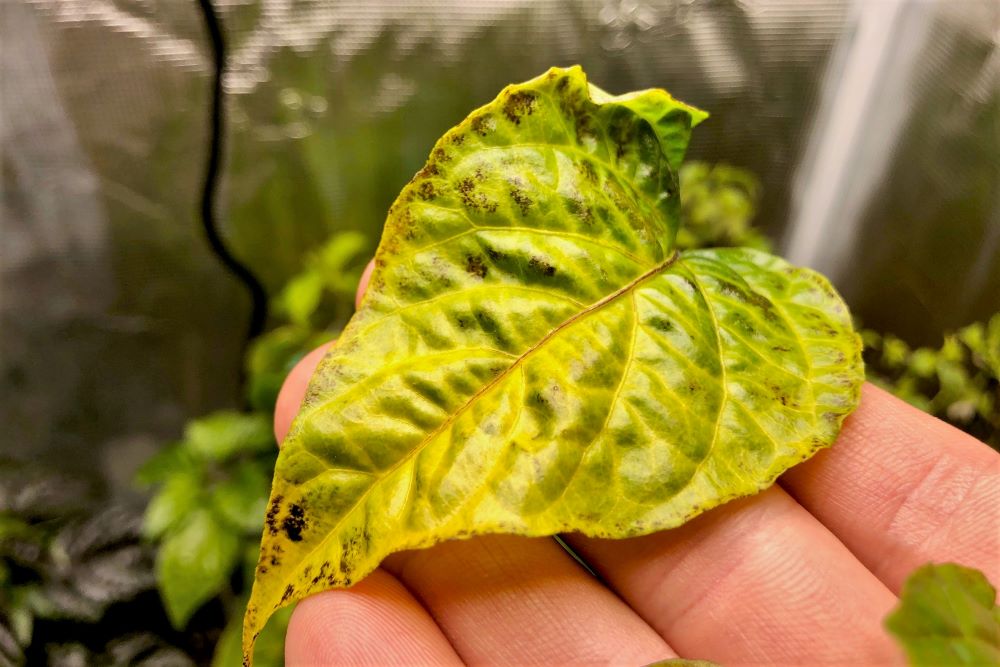Best Fertilizers for Peppers: Improve Development and Flavor with Our Top Picks
Best Fertilizers for Peppers: Improve Development and Flavor with Our Top Picks
Blog Article
Organic Vs. Synthetic Fertilizers: Which Is Best for Supporting Healthy Pepper Plants?
In the world of nurturing healthy pepper plants, the option between natural and artificial plant foods stands as an essential decision with far-ranging ramifications. While both choices aim to provide important nutrients to sustain plant growth, the nuances of their influence on the dirt, plant health and wellness, and the setting trigger a discussion that echoes throughout the gardening community. Recognizing the distinct advantages and prospective mistakes of each plant food type is vital for pepper growers seeking to optimize their yields while maintaining an eco-conscious and sustainable method.
Advantages of Organic Plant Foods
Organic fertilizers offer an environmentally-friendly and sustainable method to nourishing pepper plants, giving necessary nutrients without making use of artificial chemicals. These all-natural fertilizers are originated from natural sources such as compost, manure, bone dish, and seaweed, advertising dirt health and wellness and biodiversity. Unlike synthetic plant foods, natural choices release nutrients gradually, ensuring a steady and well balanced supply for pepper plants to thrive.
One substantial advantage of natural plant foods is their capability to boost soil framework and water retention. By boosting soil health, natural plant foods advertise helpful microbial task, which aids in nutrient uptake by pepper plants. In addition, organic fertilizers lower the threat of chemical run-off, protecting water sources from air pollution and safeguarding the atmosphere.
Additionally, organic fertilizers contribute to long-lasting dirt fertility by promoting the development of advantageous dirt microorganisms. These microorganisms aid break down natural issue, releasing nutrients in a kind that is quickly available to pepper plants. best fertilizers for peppers. By fostering a healthy and balanced dirt ecosystem, organic fertilizers support lasting pepper growing methods that benefit both plants and the setting
Downsides of Artificial Fertilizers
Synthetic plant foods, in comparison to their natural equivalents, position numerous disadvantages when made use of to nurture pepper plants, impacting both plant wellness and ecological sustainability. One significant disadvantage of synthetic fertilizers is their tendency to seep nutrients from the soil rapidly.
Additionally, the overuse of artificial plant foods can add to water air pollution. Excess plant foods not soaked up by plants can get rid of right into water bodies, resulting in eutrophication, where algae flowers diminish oxygen levels in the water, harming aquatic life. Additionally, artificial fertilizers are typically originated from non-renewable resources, such as fossil fuels, adding to carbon discharges and ecological destruction during their production.
Nutrient Absorption Comparison
Reliable nutrient absorption plays a critical role in the overall health and development of pepper plants. When contrasting synthetic and organic fertilizers in regards to nutrient absorption, organic fertilizers have the benefit of offering a more balanced and slow-release resource of nutrients (best fertilizers for peppers). Organic fertilizers consist of a selection of macro and trace elements that are not only valuable for the plants but also promote healthy and balanced dirt microbial task, which assists in nutrient uptake. On the other hand, artificial fertilizers usually offer a quick release of nutrients, which can result in seeping and overflow, resulting in reduced nutrient absorption prices by the plants.
Furthermore, natural plant foods improve soil framework and water retention capacity, allowing pepper plants to gain access to nutrients more efficiently. This enhanced soil top quality facilitates root growth, allowing better nutrient absorption. Synthetic fertilizers, although initially improving plant growth due to their high nutrient concentrations, might hinder lasting nutrient absorption by derogatory soil wellness with time.
Environmental Effect Considerations

On the other hand, artificial plant foods, although frequently more concentrated and right away available to plants, can have detrimental results on the atmosphere otherwise applied effectively (best fertilizers for peppers). Their production needs high power inputs, bring about greenhouse gas exhausts and adding to environment change. Additionally, the overflow of excess synthetic fertilizers can pollute water sources, bring about eutrophication and harming water environments.
Finest Fertilizer Practices for Peppers
To attain this, it is crucial to adhere to ideal plant food techniques customized to the particular needs of pepper plants. One important practice is to do a soil test prior to applying any type of Recommended Site fertilizers.
An additional important method is to fertilize pepper plants at the appropriate time. Generally, peppers benefit from getting fertilizer at planting and after that once again when they start to flower. Over-fertilizing can result in nutrient inequalities and hurt the plants, so it is essential to comply with suggested application rates.
Additionally, choosing a balanced plant food with an NPK ratio that fits pepper plants' demands is fundamental. Organic plant foods, such as garden compost or manure, can be exceptional options as they release nutrients slowly and boost soil framework with time. However, artificial plant foods can provide a fast nutrient increase when required. Ultimately, incorporating natural and synthetic plant foods sensibly can help nurture healthy and balanced pepper plants while reducing ecological effect.
Conclusion

Organic plant foods offer a lasting and environmentally-friendly technique to beneficial pepper plants, offering important nutrients without the use of artificial chemicals. Unlike artificial plant foods, organic alternatives release nutrients gradually, making certain a stable and well balanced supply for pepper plants to prosper.
Synthetic fertilizers, in comparison to their natural counterparts, pose different disadvantages Read Full Report when utilized to nurture pepper plants, affecting both plant health and ecological sustainability. When comparing natural and synthetic plant foods in terms of nutrient absorption, natural plant foods have the advantage of offering an extra well balanced and slow-release source of nutrients.Moreover, natural fertilizers improve dirt framework and water retention ability, permitting pepper plants to accessibility nutrients more successfully.
Report this page